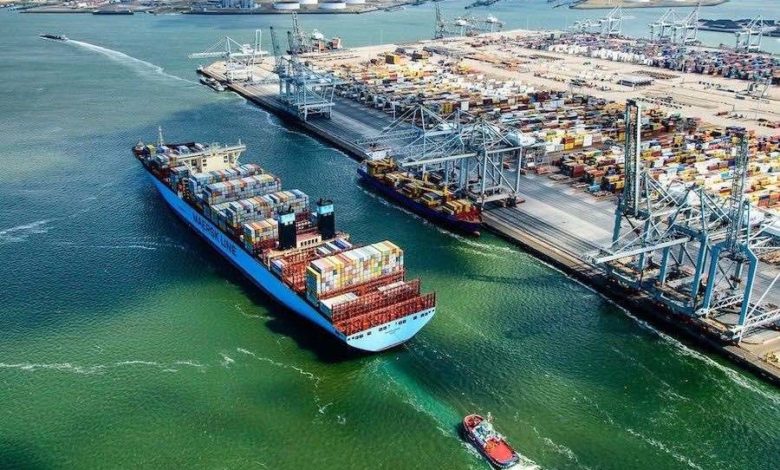Consortia BERexit?

Rotterdam-based advocate August Braakman, a specialist in maritime antitrust law, gives his verdict in the heated Block Exemption Regulation debate.
The debate between actors on the market of containerised liner shipping services who are in favour of or against the repeal of the EU consortia Block Exemption Regulation is becoming increasingly heated.
The ayes are being encouraged by two reports of the International Transport Forum; one entitled ‘The Impact of Alliances in Container Shipping’ and the other ‘Data for the Evaluation of the EU Consortia Block Exemption’. On the basis of these reports, the ITF advises the EU Commission to carefully consider allowing the consortia BER to expire in April 2020, as currently scheduled, rather than extending it.
The World Shipping Council is encouraging the noes. On the basis of a report of March 14 2019 compiled by RBB Economics at the request of the WSC and entitled ‘Consortia, pass-on and service quality’, the WSC argues that the consortia BER should be prolonged.
In my opinion the ayes have it. This opinion is based on a powerful concurrence of two factors: (i) the digitalisation of the maritime industry and (ii) the increasing demand for global door-to-door services.
The digitalisation of the maritime industry is provoking a move from supply chain models towards commodity-driven logistics solutions. Maritime logistics have increasingly developed into a high-technology industry (HTI). The constant and rapid change in HTI induces imperfect competition. A minor advantage in early competition as a result of a new innovation in the field of business may tip the market, particularly when the innovative product is protected by IP rights.
Global door-to-door services require an up-to-date and continuous flow of information among all the actors in the global chain, notably ports, terminals and shippers. In guaranteeing this flow of information, lines and the alliance they belong to who offer these services, use and develop BI&A products, preferably those protected by IP rights.
The consortia BER provides rather generous allowances on exchanges of information. These allowances were formulated in an era when HTI and BI&A products were still in their infancy among the maritime industry. Consequently, they cannot be expected to draw a clear demarcation between what is or is not allowed under EU antitrust law at present.
Repeal or a substantive modification of the consortia BER should prevent lines and the alliance they belong to from relying on these outdated and therefore obsolete exemptions of the cartel prohibition. As a result, whilst preparing their self-assessment account, all possible effects of exchanges of information that have the object or effect of constituting a noticeable infringement of fair and undistorted competition on the EU markets must be accounted for. This is a difficult but important task, particularly as in global door-to-door services BI&A products are used that cover the whole global chain.
The economic order of the EU is based unequivocally on competition. Its commitment to free market principles is evident throughout the EU Treaty. Steady economic expansion and balanced trade depend amongst others on fair and undistorted competition.
The commission requires adequate tools for guaranteeing all actors on the market of containerised liner shipping services fair and undistorted competition. Account must be taken of possible effects on competition generated by exchanges of information, in particular effects relating to global door-to-door services; not only between individual lines within the framework of alliances but also between them and ports, terminals, shippers and other actors.
The repeal or substantive modification of the consortia BER and the ensuing obligation for lines and the alliance they belong to to prepare their self-assessment from the perspective of the generic antitrust rules and block exemptions and, as the case may be, of a substantially modified consortia BER, is likely to put the commission in a far better position to properly monitor infringements of EU antitrust law than in a situation where the BER were prolonged as such or in a less than adequately modified version.
This argument gains momentum by the fact that most alliances exceed the 30% market share threshold and cannot benefit from the consortia BER anyway
Furthermore, jurisdictions of some non-member states allow for distortions of competition prohibited under EU antitrust law. The application of the generic antitrust rules and the ensuing obligation for self-assessment of lines and the alliance they belong from the perspective of these rules and, as the case my be, of an adequately modified consortia BER will provide more information on possible distortions of competition than information provided in a situation where the consortia BER were prolonged as such or without substantive modifications. This would result in improved possibilities for the commission to monitor distortions of competition from the perspective of the extra-territorial application of EU antitrust law. Digitalization and global door-to-door services require such application with increasing frequency, all the more so in the event of a hard Brexit.
